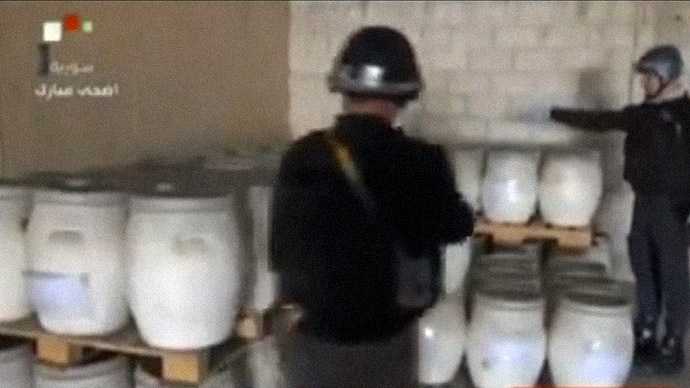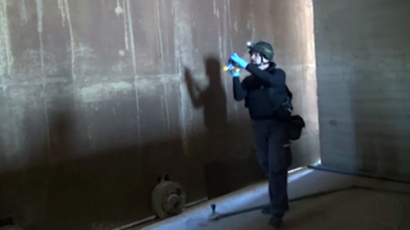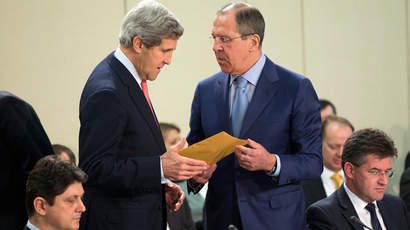West to turn down Syria’s chemical weapons transport equipment request - report

Syria’s request for military transport equipment to move chemical weapons materials out of the country will be reportedly turned down by the West as the desired hardware could potentially be used against the rebels, according to a media report.
Syria’s President Bashar Assad's administration submitted a list of transport equipment it believes it will need to safely move the chemical weapons materials via road convoys from Damascus to the coast through the conflict zone, where it can then be transported out of the country, diplomats told Reuters.
Two of the Western governments referred to the submission as a “long shopping list,” arguing that it will be denied since the equipment could be used to help Assad forces in the civil war.
"There is no way that the regime will be supplied with equipment that could be used by the army to kill more innocent Syrians," Reuters quoted one diplomat, whose government could block any consensus of the international watchdog responsible for the destruction of Syria's chemical weapons, Organisation for the Prohibition of Chemical Weapons (OPCW). "It's not going to happen."
According to the sources, Syria requested dozens of armored vehicles, generators and field kitchens to transport 1,300 tonnes of chemicals to the Mediterranean port of Latakia to comply with the UN deal to eliminate chemical weapons in the country.
Syria also asked for new communications links between Damascus and the coastal towns, arguing that it needed secured roads to move the chemical materials, as the rebels threaten the area in between the capital and the Mediterranean coast.
A second diplomat from another Western power confirmed to Reuters that Syria “will not get it from us and I don't think the UN, or EU which has applied sanctions, will do so either."
Western powers expressed confidence that Syria is able to transport chemical materials without the additional equipment.
One of the sources clarified that the West might review a revised list for possible approval, to include equipment such as flatbed trucks with the condition that they will be moved out of Syria along with the chemical weapons.
The Syrian foreign ministry has not made a comment so far and it remains unclear whether the decision will affect the timetable for chemical weapons destruction. If refused by the OPCW, Syria could potentially turn to Russia with the request.
Syrian President Bashar Assad agreed to hand over his country’s chemical arms for destruction under the terms of a US-Russian agreement brokered in September.
At the end of October, the OPCW said that Syria's entire declared stock of chemical weapons had been placed under seal. The organization admitted that Damascus has complied with the watchdog’s requirement for the complete elimination of chemical weapons and production units in Syria before November 1.
Major sponsors of the agreement would like to see most of the chemical materials out of the country by December, according to a draft agreement seen by Reuters.
The next interim deadline is November 15, which is supposed to produce a detailed plan for how Syria will remove or destroy the toxins, chemical weapons and "precursor" materials that can be used to make poisons, by a target finish date of mid-2014.
The location of where the chemical weapons that cannot be destroyed in Syria might be relocated to is still being debated, with Albania remaining as one of the possibilities.














